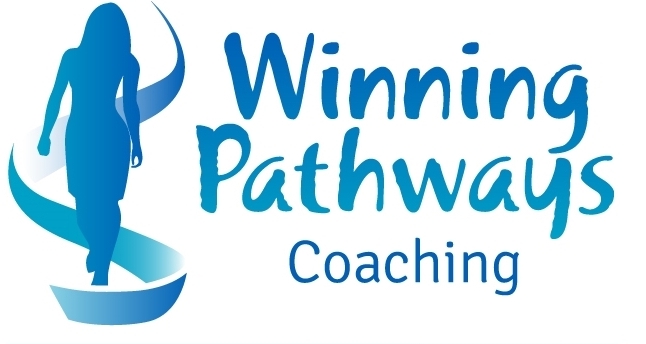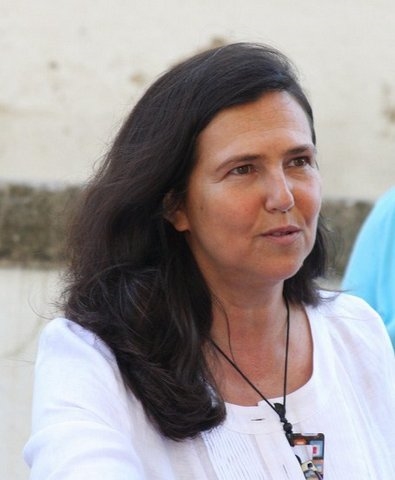Maria Ana Botelho Neves
Did you know that hospitality and food services alone throw away 650,000 tonnes of good food each year?
When poverty and hunger are real for 13 million people in the UK, this is an obscene amount of food to bin.
And here’s the thing – many of us don’t think twice about wasting food because many of us aren’t aware of food poverty.
So what do such startling statistics have to do with my Page 1 Woman? Everything, because she’s a co-founder of the charity, Plan Zheroes. Launched in 2010, it aims to achieve zero food waste and zero hunger.
Meet my Page 1 Woman, Maria Ana Botelho Neves, CEO of Plan Zheroes and a former client of Winning Pathways Coaching.
With a 30 year background in entrepreneurship, innovation and strategic design, she manages her role as a lecturer at Central St Martin’s alongside the demands of CEO. And if that weren’t enough, she organises conferences and workshops and speaks on co-creation, strategic design, innovation, branding and sustainability. She’s had an ambivalent relationship with her passion for generating innovative ideas for addressing social and environmental challenges. But without this passion Plan Zheroes might never have been created and she may not have had a leading role in eliminating food poverty.
Supported by a diverse range of enthusiastic volunteers, (‘Zheroes’), Plan Zheroes enlists food businesses (e.g. hotels, bakers and restaurants), to donate their surplus food to charities working against food poverty. ‘More and more businesses want to donate their food’, said Maria Ana.’….it’s costing them a lot to throw food away. They want to cut costs and do good’.
Here’s Maria Ana and Plan Zheroes in her own words.
Tell me about your work
Maria Ana Botelho Neves: Plan Zheroes started as a citizens’ movement, to address issues of food poverty and waste. In one week we became aware of how much good food is thrown away by businesses and about a neighbour who was struggling to feed herself and her children. We decided to find solutions.
I was asked to become CEO of Plan Zheroes but I wanted to be the ideas person. There are some internal conflicts between being someone who has the soul of a rebel and someone who has to consolidate and give clarity and structure. The latter goes against my nature but it’s something I can do.
Food poverty is connected with poverty but there’s more to it. Maybe you can’t afford the food you need or you don’t know how to cook. Maybe you live in extreme isolation and find it hard to go out to shop. Then there are ‘food deserts’ – areas of housing without local shops selling fresh food, because big supermarkets have killed them off. And you can’t access those big supermarkets without a car. And then there’s temporary food poverty caused by debt, unemployment and insecure jobs.
What’s very sad is that people are often too proud to ask for help and hide their hunger and food poverty from family and friends because they think they’ve failed.
What essential steps did you take to get to where you are today?
Maria Ana Botelho Neves: It was a long journey, with ups and downs, doubts and fears. I went through a phase where I totally lost my confidence. So, when asked to lead Plan Zheroes, I was not in an easy place. When I decided ‘I can do this’ and started to believe, things changed for the better.
I pay more attention to things that go wrong, that I don’t do well or that I don’t achieve and that overshadows everything I do well. Even with Plan Zheroes, I remember this conversation with someone from the biggest food company in the world. I was trying to come up with more ideas. She said, “But Maria Ana, what you are doing is absolutely amazing.” I thought, “Really?”
In my sessions with Winning Pathways Coaching, I tackled negative self-beliefs and feelings that were limiting my growth. And I looked at the words I used and stopped using negative words that held me back.
Then I started to surround myself with people that appreciated things rather than people who saw problems. We need positive energy, otherwise it becomes impossible, especially if you tend to focus on your mistakes.
But there was another piece I got from David Cox, an expert in creative thinking. This was a clear, positive vision of where and who I wanted to be.
What was the most significant thing you did as a woman that got you into your current position?
Maria Ana Botelho Neves: It was accepting that I am as good as anyone else and stopping my fear of not being good enough. When I attended the Power to Achieve seminar, I realised that I had this deep fear that was undermining everything. Now, I’m no longer paralysed by that fear.
What was the greatest challenge you faced on this journey and how did you overcome it?
Maria Ana Botelho Neves: The greatest challenge was overcoming fear. In my coaching sessions we started to eliminate it. Then, paying attention to the words I used which reinforced and perpetuated that fear to the point where it became my way of thinking and existing. The irony is that people would say, “When I’m with you I get inspired and believe in myself.” I was doing this for others and not for me. From that, I made a conscious effort to describe the fear and then I attended the Power to Achieve seminar and more recently the sessions with David Cox.
What was your most revelatory moment?
Maria Ana Botelho Neves: It’s a combination of many moments, some more powerful than others. The most recent was the session with David Cox and what I learned about myself there. But if coaching hadn’t prepared me for that moment, I couldn’t have absorbed the things he gave me that made a difference.
What resource has been crucial to you getting to where you are now?
Maria Ana Botelho Neves: I would say it’s my friends. They’re a source of calm, acceptance, belief, honesty and energy and make me feel good about myself. When I did my Masters in Homeless Reintegration, what was my final conclusion? ‘If you invest in your friends, you’ll never be homeless’.
I’ve always been an ideas person and I’ve a lot of empathy. But that’s the problem – I get enthusiastic about ideas and often people can become less important to me. So I lost my self-confidence partly because I began thinking that being an ideas person wasn’t good.
Then I did the Wealth Dynamics profile with David Cox which highlighted the things I’m good and bad at. So I said, “Then David, it’s okay to be creative?” He said ‘it’s not only okay, it’s your obligation. When you’re not, you’re not doing yourself or the world a good service’. When he said that, it was like someone opened the window. Before that, I was trying to be what I was not.
What do you understand by leadership?
Maria Ana Botelho Neves: To me leadership is the ability to inspire others towards a shared vision or goal. It’s the opposite of management and control. I’m not a good manager. I’m too creative for that role. But I can lead if I’m not trying to be a manager.
How has it informed your role as a woman leader?
Maria Ana Botelho Neves: I have to keep people aware that we are in this crazy phase. We have to trust our reasons and ability and don’t get stuck by things that go wrong. We need to be kind to each other and stick together. And that’s helped us move from being a chaotic organisation with no structure.
What difference does it make being a woman leader?
Maria Ana Botelho Neves: I have resilience, creativity and this female sensitivity. It’s like I have sensors everywhere and I’m constantly receiving this intangible guidance.
There’s the expression – “Fake it till you make it.” As CEO, I have to make everybody believe that I know what I know otherwise they’re scared. But I’m conscious that I’m driving this spaceship and I don’t know the universe so I may end up somewhere I don’t want to be. But you need to give people and yourself the conviction that this is working.
I’ve seen some men do it in a positive way. They say, “I’m doing the fake it till you make it for this purpose,” and they know the boundary between one and the other. The difference in my case – and I don’t know if it’s gender – I do the ‘fake it till you make it’ and I believe in it.
In ‘The Most Exotic Marigold Hotel’ the guests complain, “This is rubbish. Look at the brochure you gave us with beautiful pictures of this hotel. This isn’t what we see.” He looks at them and says, “But that’s the vision!” That’s so me.
What are your top tips for women who want to be leaders in their field?
Maria Ana Botelho Neves: Stop anything that undermines your confidence. Address your fears.
Trust yourself and others. Everybody has good inside and our talent is bringing the good rather than the bad to the surface.
Trust that you’re in the right place at that particular time. I’ve wasted time thinking ‘this won’t happen because I’m in Portugal or I’m in London’.
Allow time for things to flourish and you’ll see results. We’re surrounded by a culture that wants immediate results. We make life difficult if we constantly feel we’ve failed because we can’t wait for results.
Accept that the world is not about being right or wrong. We get obsessed with our beliefs – this is right, this is wrong. If I’m right and you’re different from me, you’re wrong. There are many different perspectives and opposites co-exist. Like day and night, at the same time, on the same planet.
When we’re born it’s like someone gives us a map and says, “This is your life, this map.” You’re shaped by the other person, your family and your culture. You believe ‘this is my map. I need to do this career. I have to achieve this, etc’. That removes the magic of what life really is about because there are magical things waiting for us.
To find out more about Plan Zheroes or to register as a volunteer click here.
What’s your view on food poverty in the UK? What food business do you know that would welcome donating food to Plan Zheroes? Leave a comment below. Thanks as ever.
Did you enjoy this post? Why not share it with your friends on Twitter, Facebook and LinkedIn?

